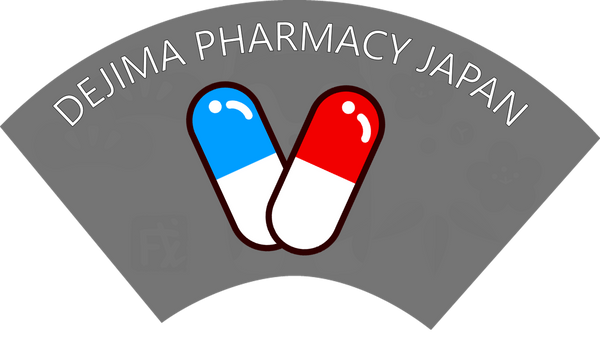
Beverages you need to be careful with Drug Interaction (3)
Share

There is a legitimate reason why we are told to “take medicines with water.” Beverages other than water often contain the nutrients, which easily interact with medicines, such as vitamins, minerals, fat, or caffeine. Even mineral water can weaken its effect.
In this article, we will continue talking how the drug interact with a certain beverages: milk and the drinks with caffeine such as coffee, green or black tea.
Milk + sleeping pills = Dizziness or dyspnea may occur
When fat-soluble medicines are taken with milk, they dissolve with milk fat and get absorbed into body very well. This may possibly cause some side effects.
You might want to be careful especially with Quazepam (trade name: Doral, Dormalin), which is incompatible with both food and beverage and has higher absorbency when taken with milk. Dangerous side effects such as having difficulties in standing-up or breathing may occur.
Although it is not as dangerous as Quazepam, it’s safer to avoid the antihyperlipidemic medicines like Probucol (trade name: Lorelco) which is also fat soluble and may cause some side effects.
There is a medicine devised to dissolve not in the stomach but in the intestine. The tablet is coated so that it dissolves only in neutral environment but not in an acidic environment. The typical example is constipation medicine. When coated type of constipation medicine is taken with milk, it does not cure and you may have some discomfort such as upset stomach or nausea. This is due to the following mechanism.
When the coated constipation medicine is taken with water, it dissolves in the intestine (neutral environment) rather than the stomach (acidic environment) and works fine. When taken with milk, the environment inside stomach changes from acidic to neutral, and then the medicine dissolves in the stomach and loses its effect since it does not reach to the intestine where it want to be absorbed.
Another type of medicine you want to pay attention is the long-acting drugs such as cold medicine that requires only once a day. Long-lasting medicines are made that the active ingredient gradually dissolves. However, the medicine will melt in the stomach at once when taken with milk, and it will not be able to demonstrate its effect. We want to leave some time for at least 1 hour after drinking milk.
When you have no appetite even though your medicine suggests you take medicine after the meal, you should eat a piece of cookie or biscuit instead of the dairy products or beverages that contain milk. Milk beverages such as cafe au lait, milk tea and yogurt easily affect the efficacy of medicine, but cookies and biscuits are less likely to affect medicine and easily taken with you or available at any stores.
Caffeinated drink + cold medicine / antipyretic analgesic = causes a headache
We enjoy and take caffeine on a daily basis with tea or coffee, but toxic symptoms will occur when taking too much. The cranial nervous system gets excessively stimulated; symptoms such as headache, dizziness, excitement, tremor, or palpitations may appear. In the United States, death of a girl who took too much caffeine have also been reported. Drinking caffeinated medicine with caffeinated beverages is dangerous.
The maximum dosage of caffeine is considered to be about 400 mg per day. For children, ideal amount is up to 2.5 mg per kg of body weight.
Representative medicines containing a lot of caffeine are cold medicines and antipyretic analgesics. Caffeine may be added to suppress drowsiness or enhance the effect.
There are also many foods and drinks that are caffeinated. Energy drinks, carbonated beverages with strong stimulus, and chocolates with high cacao content also contain a lot of caffeine.
Examples of caffeine-rich drinks and amount of caffeine content:
- Cola (35mL) 40mg
- Coffee (140mL) 40~50mg
- Black tea (140mL) 20~50mg
- Hot chocolate (140mL) 20mg
- Green team(100mL)20mg
Medicines such as migraine drugs that act on the brain are not compatible with caffeine. Besides these, more drugs are also incompatible with caffeine, so we want to avoid taking medicine with drinks with caffeine. Here are the examples listed below:
Migraine medicines
- Sumatriptan (Trade name: Imigran、Sumatran)
- Naratriptan (Trade name: Naramig)
- Rizatriptan (Trade name: Maxalt)
- Eletriptan (Trade name: Relpax)
Antipyretic analgesic
- Aspirin
Antiasthmatic
- Theophylline (Trade name: Theo-Dur)
Antidepressant
- Fluvoxamine (Trade name: Luvox)
Antiepileptic
- Clonazepam (Trade name: Klonopin)
Sleeping pills
- Zopiclone (Trade name: Apo-Zopiclone)
Matcha green tea + antithrombotic drug = decreases the effect and causes thrombus easier
The antithrombotic drug warfarin potassium (trade name: MAREVAN etc.) is not compatible with matcha green tea. Matcha contains a lot of vitamin K, and it negates the action of medicine.*For warfarin potassium, refer to the article, “Foods you need to be careful with Drug Interaction (2)."
Tea leaves of Japanese tea are rich in vitamin K. However, when they are steeped with hot water and vitamin K almost disappears. Matcha green tea is usually taken as powdered tea leaves melt with cold water as is, so vitamin K does not decrease, and the absorption of warfarin potassium is suppressed. If you really want to drink Japanese tea, either green tea or hoji tea steeped with hot water would be preferable.
In addition, the famous Japanese dessert, Matcha ice cream uses the essence of matcha leaf powder as is and contains rich amount of vitamin K. We be careful of eating too much and drinking too much.
Black tea + antipyretic analgesic / cold medicine = starts feeling sick and having a headache.
Black tea may affect the metabolic enzyme CYP *. The most acknowledged medicine that is affected by black tea is Acetaminophen (aka paracetamol). If small amount is taken, it does not affect but large amount of tea you take may increase the effectiveness of the medicine and cause headache. *Refer to the article, “How food and beverage interfere with your medications (1).”
Cold medicines on the market contain both acetaminophen and caffeine. If you take a cold medicine with black tea, the effect of acetaminophen is strengthened; it will cause you sick feeling, rapid heartbeats, and dizziness.
Depending on the kind of black tea leaves, the content of vitamin K is high, and it weakens the effect of antithrombotic drug warfarin potassium. We should watch on the baked pastry that uses tea leaves as well.
Summary
This time we covered the compatibility of medicine with milk and caffeinated drinks. We hope you now understood that it is not only foods but there are drinks that are not compatible with medicine as well.
Especially, many people enjoy coffee or tea on a daily basis and it seems that many people may have taken medicines with coffee and tea. Since you have just learned about the risks today, we hope you would start taking medicines only with water from today.
Next time will also continue explaining the dangerous combinations between beverages and medicines.
